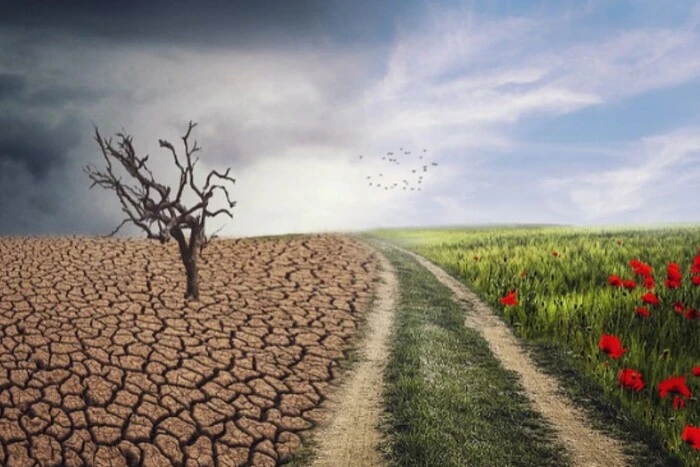2024 becomes the warmest year in recorded history – scientists.


Warmest year: Earth's surface temperature has risen by 1.55 °C
In 2024, the average surface temperature of the Earth increased by 1.55 °C. This indicates that last year became the warmest in recorded history. This is reported by the World Meteorological Organization.
It is noted that the conclusion is based on several sources: from the European Centre for Medium-Range Weather Forecasts, the Japan Meteorological Agency, NASA, the National Oceanic and Atmospheric Administration of the USA, and the UK's Meteorological Office in collaboration with the Climate Research Unit of the University of East Anglia.
All six datasets identify 2024 as the warmest year in recorded history, and they all emphasize the acceleration of warming. However, not all show a temperature anomaly above 1.5 °C due to differences in methodologies.
This was accompanied by destructive and extreme weather, rising sea levels, and melting ice, all driven by record levels of greenhouse gases due to human activity, - said WMO Secretary-General Celeste Saulo.
UN Secretary-General António Guterres added that the hot days of 2024 will require innovative measures to combat climate change in 2025.
Let us remind you that on Friday, January 17, cloudy weather with clearings is expected in Ukraine. Forecasters predict light rain and wet snow.
Except for the western regions and the southwest, light rain and wet snow are expected in Ukraine. On the roads of the country, except for the south, there will be icy patches. In most western regions, fog is expected at night and in the morning.
Read also
- Vatican names the cause of death of Pope Francis
- The population of Ukraine is aging rapidly. Demographer discusses the consequences
- Birth Rate or Migrants? Expert Explained What Will Save Ukraine's Demography
- The government representative named the number of people in Ukraine who are considered missing
- The Ministry of Defense announced new features of Reserv+
- Should 18-year-olds be mobilized? Expert explains how it will affect demographics










